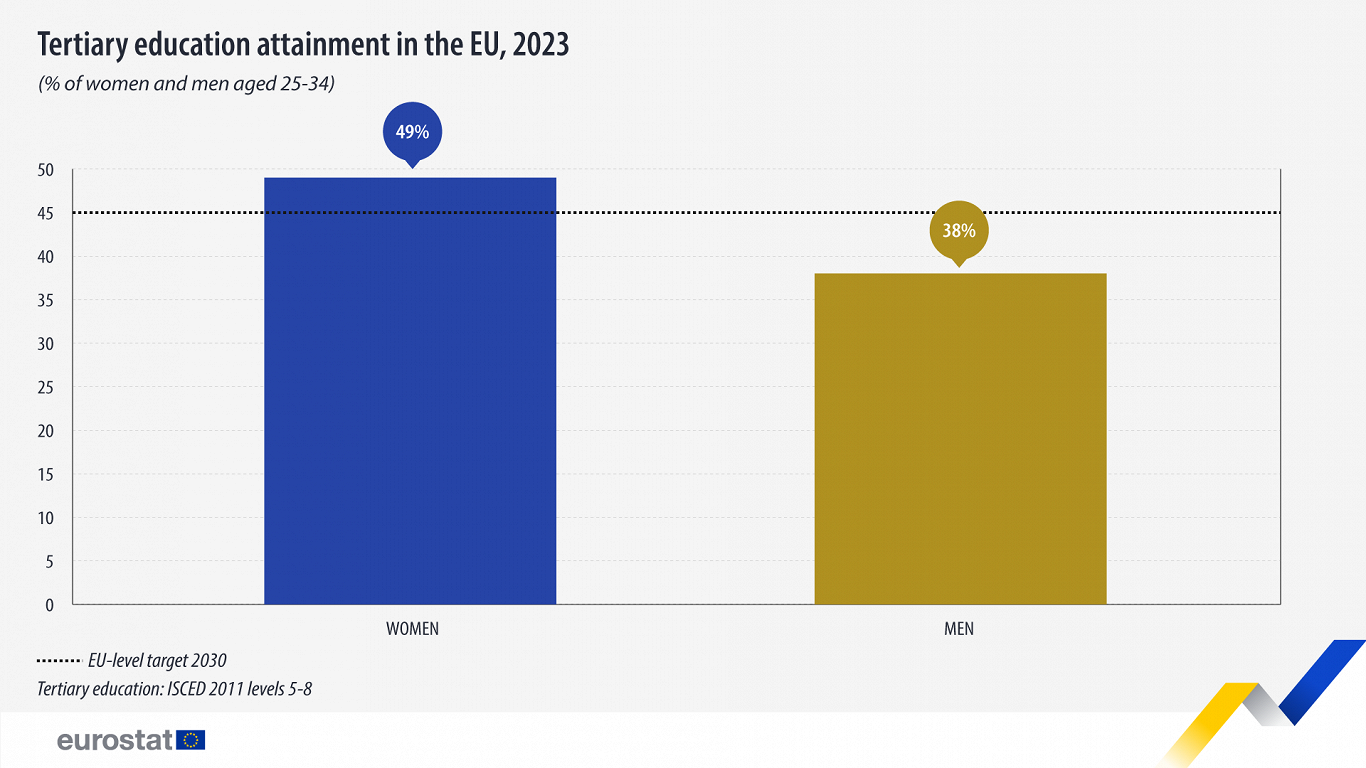In 2023, 43% of the EU population aged 25-34 years had tertiary education (ISCED levels 5-8), a 1 percentage point (pp) increase compared with 2022 (42%). This is 2 pp below the EU's 2030 target, which aims for 45% of the EU population aged between 25-34 years to have tertiary education.
The 13 countries already making the grade are Ireland (63% of total population aged 25-34), Cyprus (62%), Luxembourg (60%), Lithuania (57%), the Netherlands (55%), Sweden (54%), Spain and France (both 52%), Belgium (50%), Denmark (49%), Malta and Poland (both 46%), with Latvia just scrapig a pass mark on 45%.
In contrast, the lowest shares were recorded in Romania (23%), Hungary (29%) and Italy (31%).
Source dataset: edat_lfse_03
There is a gender gap when it comes to tertiary education attainment among people aged 25-34, as a higher percentage of women have tertiary education compared with men (49% of women and 38% of men).
In all EU countries, the shares of tertiary education attainment were higher for women than men, ranging from a 5 pp difference in Germany to a 24 pp difference in Estonia, Latvia and Slovenia. For Latvia the figures are 33% for men and 57% for women.





























